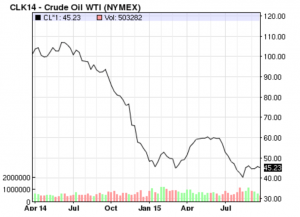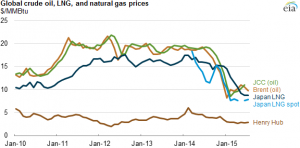REX MARTINICH
Opinion
The Hamilton Spectator – April 03, 2015
THE Mandatory Data Retention scheme that was passed by both houses of Australia’s Parliament last week represents the unholy trinity of bad legislation: rushed debate, unclear costs and no real solutions.
To make things clear, I am not a libertarian or anarchistic extremist who is calling for the end of all government surveillance.
Targeted surveillance has saved lives and will continue to save lives; it should be available to police and intelligence agencies though a system that is fast and flexible, but has appropriate safeguards and accountability.
On the other hand, retaining communications metadata on 23 million Australians is a form of mass surveillance that is unreasonable, expensive and ineffective.
The Government says it only wants access to the ‘envelope’ not the ‘letter’ inside, to use a 19th century analogy that has been widely employed by MPs.
Political strategy
The thin, artificial line between digital ‘envelopes’ and ‘letters’, applied to almost every form of modern communication, is a political strategy to make this mass surveillance more palatable to the general public.
As US intelligence service whistleblower Edward Snowden has stated, metadata is the most valuable part of mass surveillance because it cannot lie, it can be processed automatically by a computer and it does not need language translation.
Under Mandatory Data Retention, the government can tell that you called a doctor’s office and a sexual health clinic in the last two years but it doesn’t know what you talked about.
It can tell you called your accountant, your financial adviser and a ‘money lender of last resort’ all in one day but it can’t tell what the issue was.
It can tell that you called a marriage counsellor and a removalist, received an email from a last-minute hotel booking service and started using your phone on the other side of town, but it can’t tell the health of your relationship.
Minute-by-minute
It will record which towns and suburbs you have visited with your mobile phone over the last two years, sometimes at a minute-by- minute level of detail, but this isn’t ‘real-time tracking’ according to Wannon MP Dan Tehan.
It make use of all these powers without a warrant using legislation that predates the sale of home computers, and will have the amplified power of two years’ worth of records.
A lengthy record of whom you communicate with, who communicates with you, and when and where this all happens, is hugely revealing even if you aren’t a journalist or whistleblower.
The Associated Press reported on Tuesday that the US Government is considering an end to mass phone metadata retention as an internal review had found it “not central to unravelling terrorist plots”.
American civil liberties groups claimed that the only identifiable conviction that has come to light from phone metadata alone was for a taxi driver who sent $15,000 to a terrorist group in Somalia.
If Mandatory Data Retention offered even a faint hope of combating terrorism it would be much easier to support, but the international experience is that it has only increased crime clearance rates by 0.006 per cent.
Considerable damage
That tiny increase, about 100 times less than what might be considered statistically significant, will be achieved at the cost of the presumption of innocence and considerable damage to Australia’s tech sector.
Under the most generous estimate, about half the costs will be passed directly on to consumers; it is a new tax of at least $120 per year for the privilege of being spied on.
It is another broken promise from Prime Minister Tony Abbott.
The Labor Party deserves equal blame, both for supporting the legislation and for letting the concept gain significant ground under former Prime Minister Julia Gillard in 2012.
The rise of the so-called Islamic State and its brainwashed young followers in the suburbs of Australia were used to justify the latest reincarnation of mandatory data retention.
However, Islamic State has already distributed an easy-to- follow internet security guide to its members and sympathisers that renders Data Retention completely useless.
The horror of the Charlie Hebdo magazine killings in Paris was also invoked by Mr Tehan despite France already having a robust mandatory data retention scheme, which manifestly failed to prevent the attack.
Even the Chinese Communist Party, which has both metadata and content surveillance built into China’s internet and pays about 100,000 people to monitor online conversations, has failed to prevent all terrorist attacks.
More arrests
When those aims failed to cut through to voters, the list of claimed benefits was expanded to include more arrests of drug traffickers and paedophiles.
The Australian Federal Police had already let slip that the system would help civil lawsuits against those who share Hollywood films on the internet, a trivial offence in comparison.
When you look past the spin, there is no real urgency to this law as it has been languishing around Canberra for at least seven years and will not be implemented for at least two years.
Listening to the rhetoric from the Coalition and Labor, it was as if passing the Bill would force Internet Service Providers (ISPs) and telcos to simply hit a switch and instantly retain records.
Prior to the widespread adoption of the internet it was only feasible to protect your electronic communications if you had been trained by a spy agency or worked for a major corporation.
One of the first free military-grade encryption applications was released in 1991, and since 2002 it has been possible to mask your identity online using relatively simple software.
For any kind of criminal, let alone a terrorist, avoiding Data Retention will be even easier than installing a software package.
“Smart criminals”
Attorney General George Brandis has conceded that “smart criminals” may be able to get round his new surveillance system.
If you can figure out how to sign up for popular email services such as Yahoo or Gmail, or a social network like Facebook, then congratulations: Senator Brandis now considers you “smart”.
The Australian Government has no power to force overseas communications providers to store useless data, and so it hasn’t even tried.
According to internationally- respected magazine, The Economist, mobile messaging apps will be technology’s latest battleground.
However, in this new technology race Australia has already started to slash its own Achilles tendons with Data Retention.
The massive cost of creating and storing data that is useless for commercial purposes will scare off any group considering launching messaging apps, or even local offshoots, in Australia.
Almost all the jobs, investment and tax revenue from mobile messaging boom will flow to countries that have never instigated mandatory data retention, or have wisely decided to abolish it.
Bear the brunt
Even humble email services are likely to depart these shores, with only the biggest of Australia’s hundreds of ISPs likely to bear the brunt of data retention.
Google’s Gmail is standing by to offer cheap, encrypted, overseas- based and data retention-exempt email for businesses.
The lion’s share of economic benefits will flood to Silicon Valley in California, not Australia’s ‘Silicon Beach’.
Data Retention will create jobs, but mostly they will be in other nations with cheaper power and labour costs for warehousing hard drives.
Detailed information on your everyday life will be kept overseas by the lowest bidder, except for Telstra, which has pledged to store it locally.
If you or your children are planning to study for an IT course, it might be worth asking Mr Tehan why the Australian Government has opted to make it much harder to get a tech job in this country.
Great to speak at Policing Technology Forum in Canberra, discussing Data Retention Bill. #auspol #dataretention pic.twitter.com/VkHDn66a7a
— Dan Tehan (@DanTehanWannon) March 18, 2015
It is such as shame that the Coalition chose this path, having gotten off to a great start last year by announcing tax reforms that aim to encourage local entrepreneurs and investors to launch new tech ‘startups’.
Mandatory Data Retention represents an incredible back flip for a party that claims to stand for the ideals of more freedom and jobs, with less regulation.
Note: About four months after this piece was published, ABC reporter Will Ockenden requested his own smartphone metadata from a telecommunications provider. He published the results and then asked ABC viewers to analyse the raw metadata to see what they could learn about him. A week later they provided a “scarily accurate” profile of his physical movements during a 12-month time period.

